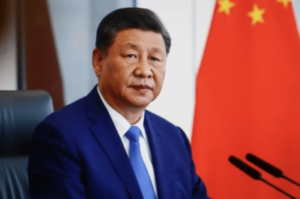$TSLA $ZKH $NIO
#Tesla #Zeekr #ChinaEV #ElectricVehicles #Automotive #StockMarket #Investing #EVcompetition #TechNews #SelfDrivingCars #ChinaTech #MarketAnalysis
Chinese electric vehicle startup Zeekr is ramping up competition in the rapidly growing EV market by offering its advanced driver-assistance system (ADAS) to customers in China at no additional cost. This move sets Zeekr apart from rivals like Tesla, which charges a premium for similar features. As the global EV market becomes increasingly competitive, Zeekr’s decision could pressure competitors to rethink their monetization strategies. Industry analysts view this as a bold strategy to attract more customers and gain significant market share in China’s booming electric car sector. Given the regulatory environment and consumer demand for autonomous technology in China, Zeekr’s decision could enhance its brand appeal and accelerate sales in the region.
Zeekr, a premium electric car brand under the Chinese automotive giant Geely, has been expanding aggressively amid rising competition from domestic and international EV players. Tesla, Nio, and XPeng have all invested heavily in autonomous driving technologies, with some charging significant fees for software-based upgrades. By offering its ADAS for free, Zeekr effectively disrupts existing pricing models in the industry. While Tesla charges up to $15,000 for its Full Self-Driving (FSD) package in some markets, Zeekr’s free rollout could pressure companies to reevaluate their premium pricing models. If Zeekr is successful, this strategy may help it secure a larger portion of China’s lucrative EV sector, which is already the world’s largest market for battery-powered vehicles.
In financial terms, Zeekr’s move signals a long-term growth strategy focused on customer expansion rather than immediate profitability. Instead of generating revenue from software subscriptions, the company might be aiming to build a loyal user base that translates into repeat buyers and stronger brand loyalty. Investors will be closely watching the short-term financial impact, particularly how this decision affects Zeekr’s margins and profitability. For Tesla, this could pose a new challenge in maintaining its pricing power in one of its most strategic markets. Chinese EV stocks, including Zeekr and Nio, may witness increased volatility as markets assess the potential shift in consumer preferences.
Overall, Zeekr’s bold ADAS strategy reinforces the intensifying competition in the EV industry, especially in China, where domestic brands are closing the gap with Tesla. Broader market implications include potential price adjustments from other automakers and increasing consumer expectations for high-tech features at lower costs. Meanwhile, global investors in the EV space will need to consider how innovations in autonomous technology influence company valuations and competitive positioning. As Zeekr and other Chinese automakers continue to push the boundaries of affordability and technology, the evolution of pricing strategies will remain a key factor in shaping the industry’s future.










Comments are closed.